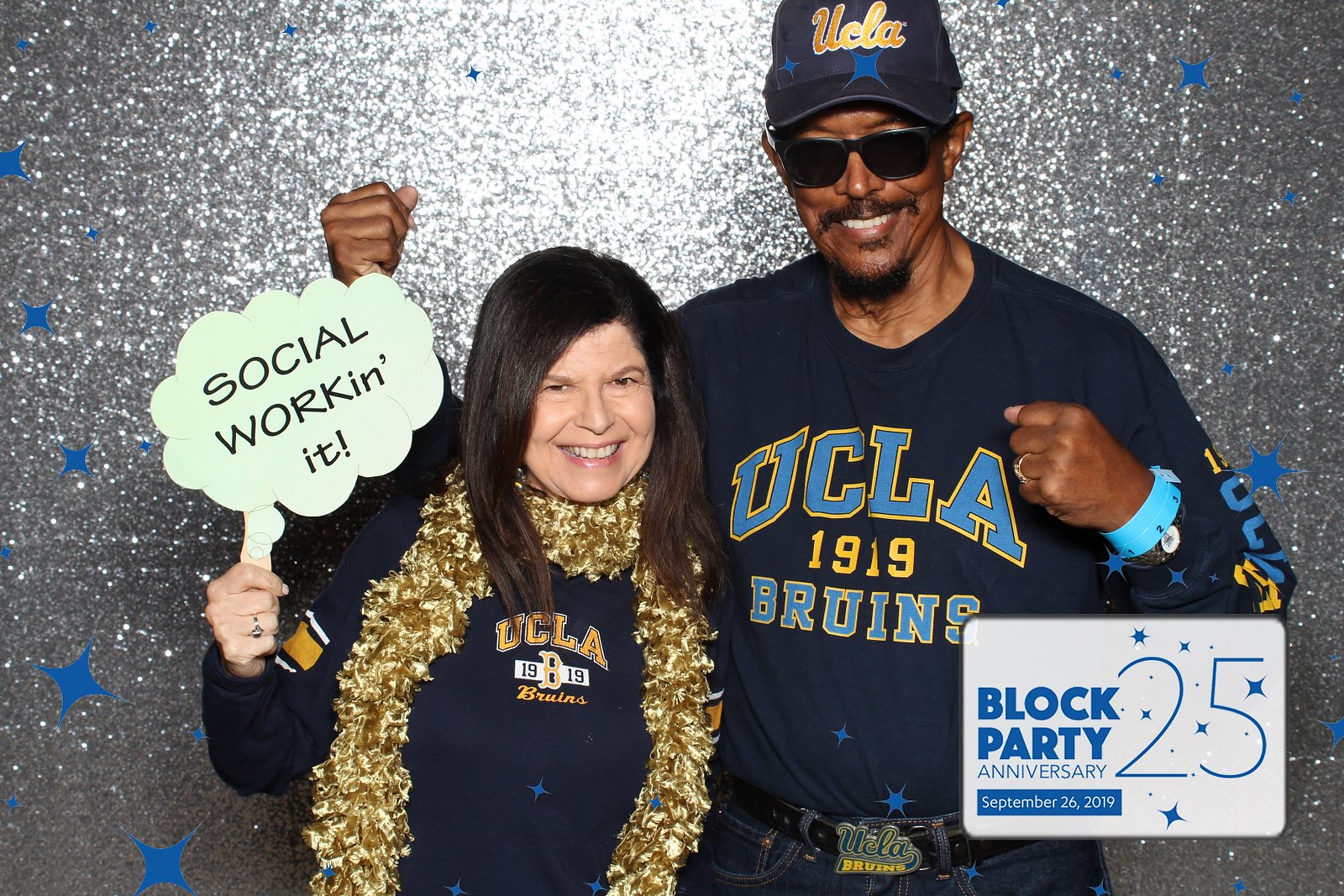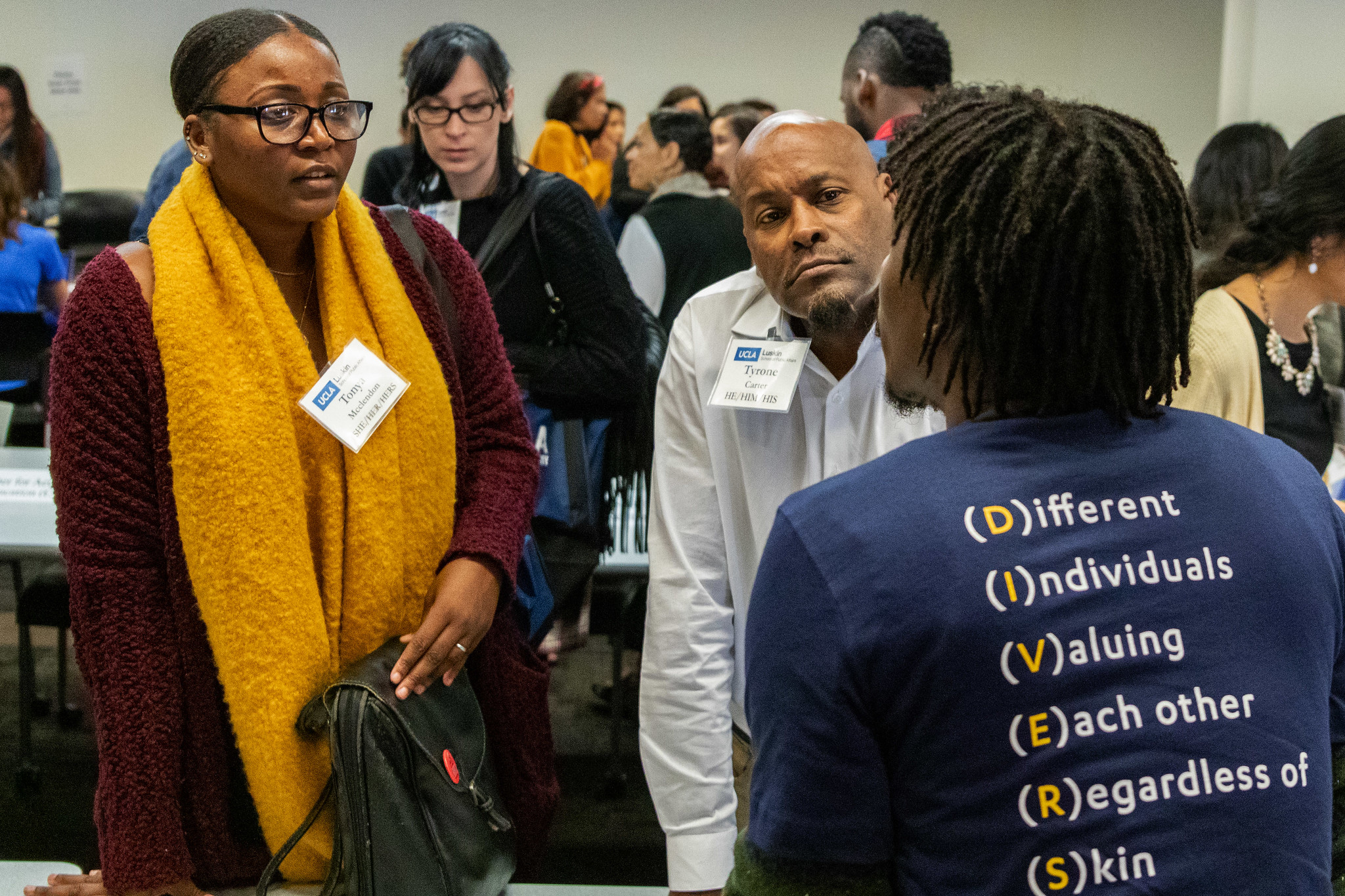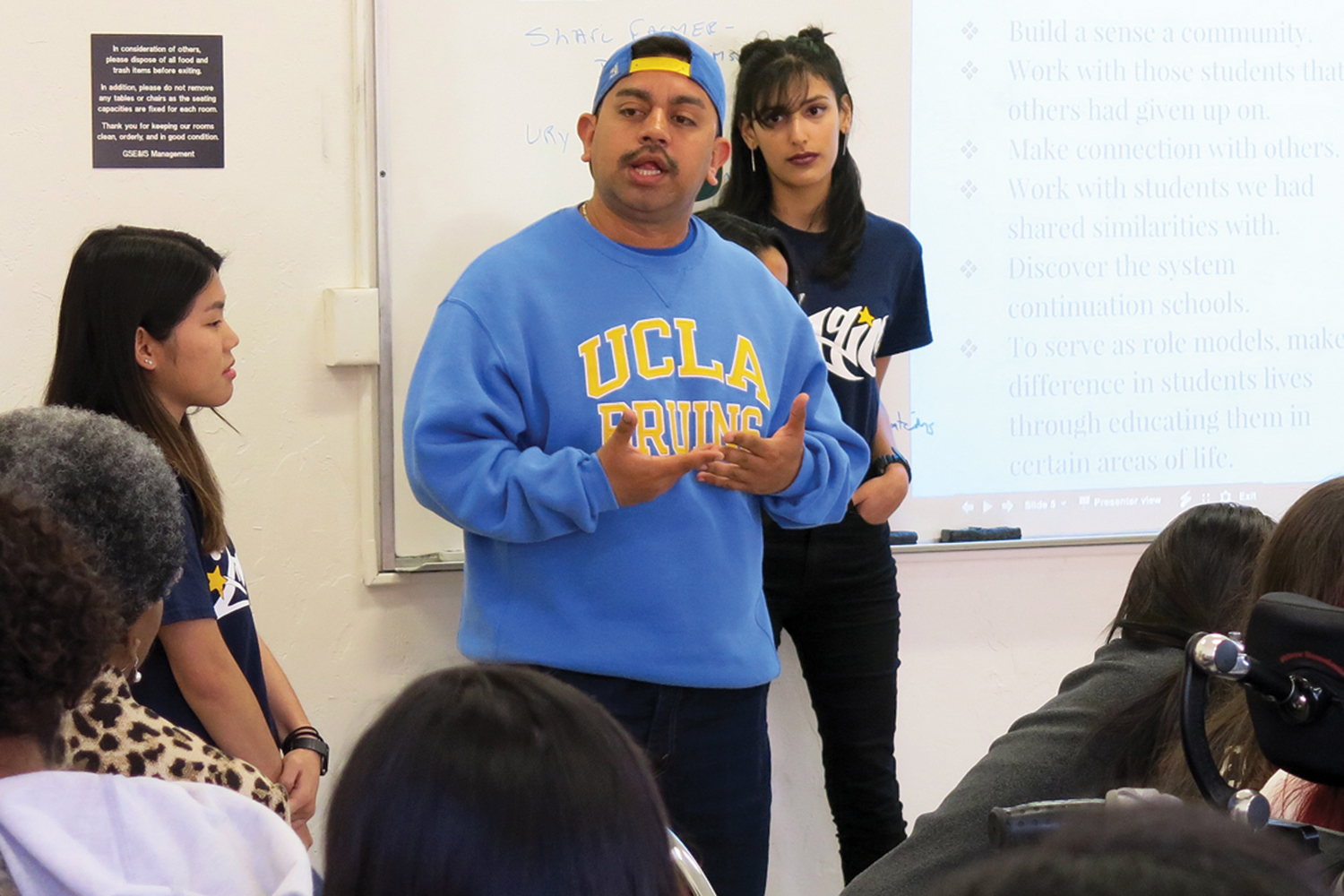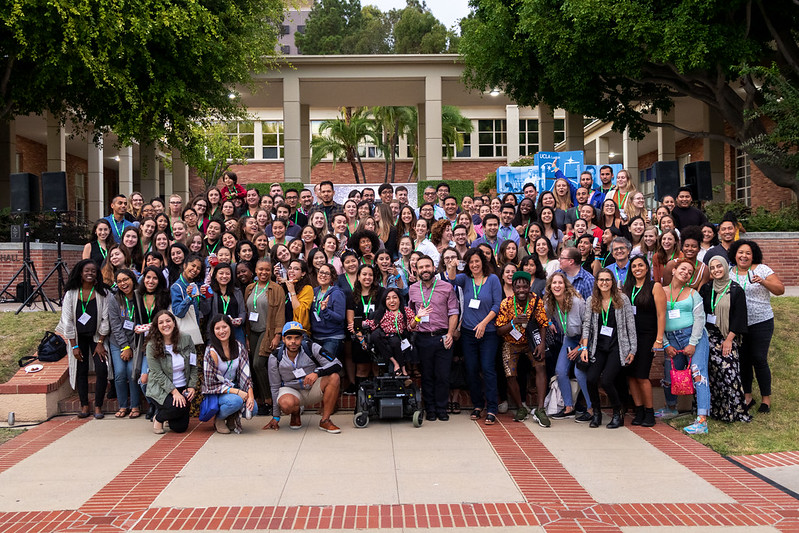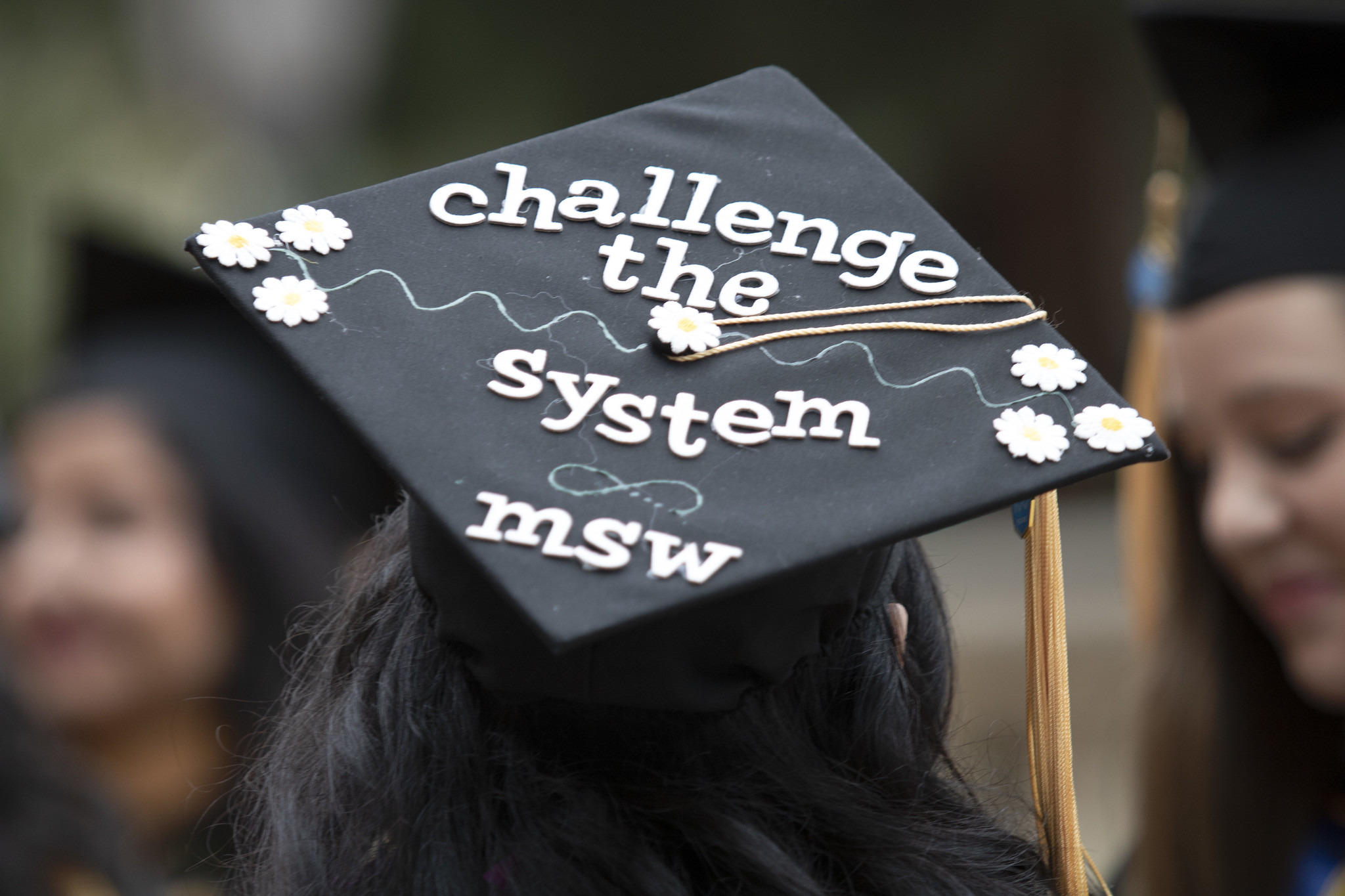About Our Masters Program
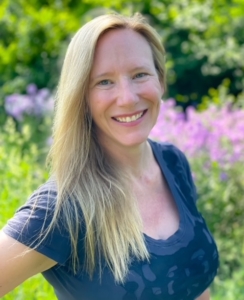
Chair Poco Kernsmith, PhD
UCLA Luskin’s Master of Social Welfare is a two-year period of full-time study or a three-year period of part-time study. In addition to our core curriculum, you can participate in an advanced research course or research project focused on an issue of interest to you. Two practicum placements with social work agencies let you put into action what you have learned in the classroom, providing invaluable real-world experience.
As professionals and scholars in a public research university, the faculty of the Department of Social Welfare are committed to the highest level of training to produce the next generation of practitioners and leaders for the social work profession and to advance the knowledge base for social work policy and practice.
Mission of the MSW program:
Rooted in UCLA Luskin’s School of Public Affairs and the Department of Social Welfare, our MSW program mission advances social justice, promotes health and mental health across the life span, and enhances child and family well-being. The UCLA Masters of Social Welfare program is dedicated to educating and equipping skilled, compassionate, and innovative social work professionals and visionary change agents who uplift health and well-being through a person-in-environment framework that integrates global perspectives and scientific inquiry while honoring human diversity in all its forms. Aligned with social work values and ethics, our program prepares social workers committed to eliminating poverty and racism, fostering social, racial, economic, and environmental justice, and creating conditions that uphold human rights and dignity for all people. Guided by core values of justice, service, integrity, competence, anti-oppression, and the fundamental importance of human relationships, we equip our students with the knowledge and tools to respect and embrace human diversity, address society’s most pressing social issues, engage with practice-informed and evidence-based inquiry to inform social policy and practice, partner with diverse communities and organizations in Los Angeles and across the globe, and empower individuals and communities to enhance quality of life and achieve their fullest potential.
Plan of Study (2-year Option)
UCLA Luskin’s Master of Social Welfare two-year, full-time program consists of coursework along with practicum education. The first year, our generalist core curriculum is comprised of coursework in:
- Social welfare policy and leadership
- Theories of human behavior and social systems
- Generalist practice
- Research and statistics
- Practicum education
During the spring quarter of your first year, you will select an Area of Concentration (AoC) as a focus for your second-year practice, leadership and theory curriculum and practicum. The three AoC options are:
- Health and Mental Health Across the Life Span
- Social and Economic Justice
- Child and Family Well-Being
To view up-to-date annual student fees and cost of attendance, look here.
Year 1
Your REQUIRED first-year courses will be as follows:
| FALL | WINTER | SPRING |
| 202A – Dynamics of Human Behavior or Other Elective | 210B – Generalist Practice II | 210C – Generalist Practice III |
| 210A – Generalist Practice I | 211B – Theory II | 213B – Statistics |
| 211A – Theory I | 212 – Intergroup Dialogue | 232/242/252 – AoC Core Course |
| 214A – Policy | 213A – Research | 401C – Practicum |
| 401A – Practicum | 401B – Practicum | |
| 405 – Community Advocate Training |
Note: Extra courses may be required for CA Title IV-E, HCAI SWECE, PCW, School Social Work and other special training programs. Consult the graduate advisor for information.
Year 2, Child and Family Well-Being (Area of Concentration)
The Child and Family Well-Being Area of Concentration prepares students to recognize and understand the determinants of well-being for children and families within and outside of the family system. In addition, this concentration prepares social work students to intervene utilizing methods that promote child and family functioning in physical, behavioral, affective, social, and cognitive areas. The theoretical and evidence bases, for this concentration include knowledge about normative and nonnormative developmental trajectories, stressful life transitions, interpersonal processes, environmental conditions and circumstances that support the growth and development needs of children and the social justice needs of disadvantaged families. The curriculum offers multilevel training that builds expertise for intervening at individual, family, community, and policy levels.
Students go on to work in various settings such as public and private welfare agencies, school systems, mental health settings, and health care practice. A social worker in this concentration will be prepared to practice in: outpatient clinics; in-home, guardianship, foster care, or group residential settings; community centers; prevention agencies; juvenile courts and justice programs; family and youth service programs; grass-roots advocacy organizations; and local, state, or national policy settings.
Several sub-concentration areas in the department can be completed to complement the Child and Family Well-Being Concentration: Credential programs in School Social Work; and Child Welfare programs (CA Title IV-E and UCCF).
Second Year: Child and Family Well-Being Area of Concentration – 12 courses (45 units)
Co-Chairs: Laura Alongi Brinderson and Carlos Santos
| Course Type | Required or Choice | List of Courses* | |
| Advanced Practice | 1 Required | SW 231A – Family Systems Interventions
SW 231N – Early Childhood Mental Health SW 231S – Child and Adolescent Trauma |
|
| Advanced Policy | 1 Required | SW 290J – Child Welfare Policy
SW 290N – Public Policy for Children and Youth |
|
| Theories of Human Behavior and Social Systems | 1 Required | 202B – Child and Adolescent Psychopathology | |
| Additional/Outside Course | 1 Required | Course may be outside AoC or outside Department with permission – Advanced Practice Course is highly recommended | |
| Research Capstone | 3 Required | SW260A, SW260B, SW 260C | |
| MSW Electives | 2 Required | Can be any MSW course | |
| Practicum | 3 Required | SW 402A, SW 402B, SW 402C, SW 405 | |
* Not all choices will be offered each year
Year 2, Health and Mental Health (Area of Concentration)
This concentration emphasizes expertise in health and mental health across the lifespan through the integration of research and critical thinking, practice, leadership and policy analysis. Drawing from the social determinants of health model, issues of quality of life and longevity are linked to the exacerbation of social and economic disparities. Courses in the concentration examine wellbeing and resilience as well as disease and disability. The practice emphasis is on prevention and behavior change, by means of theoretically driven, empirically tested, culturally tailored and technology-supported interventions. Barriers and obstacles impeding individuals from gaining access to, and using, affordable and personalized services in health, mental health, and social services are analyzed from various perspectives. Students pursue employment in a wide range of health, mental health and substance abuse oriented settings in communities and institutions, including private practice. They can expect to pursue careers in behavior change (individual and group counseling and psychotherapy), case management, administration, policy formulation and analysis, and research and teaching.
Second Year: Health and Mental Health Across the Lifespan Area of Concentration – 12 courses (45 units)
Co-Chairs: Tatiana Lodoño and Michelle Talley
| Course Type | Required or Choice | List of Courses* |
| Advanced Practice | 1 Required | SW 231K – Mental Health
SW 231M – Health |
| Elective Advanced Practice | 1 Required, more recommended | SW 231A – Family Systems Interventions
SW 231E – School Social Work SW 231F – Cognitive Behavioral Therapy SW 231G – Substance Abuse SW 231N – Early Childhood Mental Health SW 231P – Gerontology SW 231Q – Psychopharmacology SW 231S – Child and Adolescent Trauma SW 231x – Human Sexuality SW 251A – Domestic & Sexual Violence |
| Advanced Policy | 1 Required | SW 290K – Mental Health Policy
SW 290M – Health Policy |
| Elective Advanced Policy | 1 Required | SW 290D – Criminal Justice and Mass Incarceration Policy
SW 290E – LGBT Health, Law and Public Policy SW 290G – Psychotropic Drugs & Medications: Harm Reduction Policies Any SW 290 course (to be approved by your advisor) |
| Research Capstone | 3 Required | SW260A, SW260B, SW 260C |
| MSW Electives | 2 Required | Can be any MSW course |
| Practicum | 3 Required | SW 402A, SW 402B, SW 402C, SW 405 |
* Not all choices will be offered each year
Year 2, Social and Economic Justice (Area of Concentration)
This area of concentration prepares students to promote social justice and equity in a variety of domestic and global social welfare settings through an integrated model of theory, policy advocacy, research, and advanced generalist practice skills. Students will focus on theories of social justice and inequality and methods of coalition building, community development, and policy advocacy in order to address complex and interrelated challenges of race and gender disparities, global and domestic poverty, and criminal and juvenile (in)justice.
Through course work and field experiences, students can expect to pursue domestic or global careers in community development, voluntary/non-profit sector services, criminal and juvenile justice settings, or in various spheres of policy advocacy and implementation, grassroots organizing, and government agencies. Students will be prepared to work with a variety of populations including people living in poverty, those displaced by homelessness, war, or migration, those who are incarcerated or on probation or parole, and those who have experienced various forms of discrimination and marginalization.
Second Year: Social and Economic Justice Area of Concentration –12 classes (44 units)
Co-Chairs: Susan Lares-Nakaoka and Amy Ritterbusch
| Course Type | Required or Choice | List of Courses* |
| Advanced Practice | 1 Required | SW 241J- Community Practice |
| Elective Advanced Practice | 1 Required, 2 Recommended | SW 241E – Leadership, Development and Governance of Nonprofit Organizations
SW 241I – Grant Writing |
| Advanced Policy | 1 Required | SW 290D – Criminal Justice and Mass Incarceration
SW 290L – Poverty and Welfare Reform |
| Elective Advanced Policy | 1 required; 2 may be chosen | SW 290T – Juvenile Justice Policy
SW 290W – International Social Work or Any SW 290 course (to be approved by your advisor) |
| Research Capstone | 3 Required | SW260A, SW260B, SW 260C |
| MSW Electives | 2 Required
1 recommended outside the department |
Can be any MSW course or outside course addressing economic or racial disparities, gender justice and women’s rights, economic development, criminal justice, or social action/community organizing |
| Practicum | 3 Required | SW 402A, SW 402B, SW 402C, SW 405 |
* Not all choices will be offered each year
Plan of Study (3-year Option)
A 3-year program option is available for students interested in the Child and Family Well-Being Area of Concentration. Students in this program will take classes in the mornings and work with their practicum agencies to complete their required internship hours over the course of their academic program. Please note that this is not an evening and weekend program, classes and internship will be scheduled during regular business hours. The additional cost of the 8 quarter MSW is $16,440 (approximately $65,760 in total), while the additional part-time cost with the PPS credential added is $24,660 (approximately $73,980 in total). These costs are based on CA residency and current published tuition information (subject to change).
Sample Plan of Study for Part-Time MSW with Child and Family Well-Being area of concentration.
For a complete list of Social Welfare graduate courses with descriptions, look here.

Contact
UCLA Luskin School of Public Affairs
3250 Public Affairs Building - Box 951656
Los Angeles, CA 90095-1656
Campus Resources
Follow
The statements on this page represent the views of people affiliated with the Luskin School of Public Affairs and do not necessarily represent the views of the University of California, or UCLA or its Chancellor.
Posts and comments by individuals at UCLA on social media channels may not reflect the opinions or policies of UCLA, the University of California or the Luskin School, nor its benefactors and academic partners.
